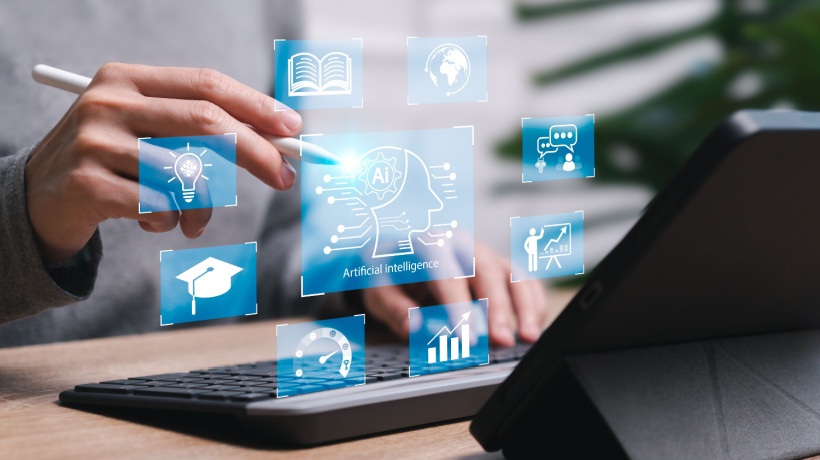Unveiling The Future: AI Integration In Education
In recent years, Artificial Intelligence (AI) has carved its niche within the educational sector, revolutionizing how courses are taught and consumed globally. As technology evolves, AI's integration into online learning platforms heralds a promising future for education, making it more accessible, personalized, and efficient. This article explores the various facets of AI integration in education and its profound implications for future learning environments.
The Impact Of AI Integration In Education
The adoption of AI in education isn't just a trend; it's becoming a vital part of educational ecosystems around the world. AI technologies such as Machine Learning, Natural Language Processing, and predictive analytics are reshaping the educational landscape. From automating administrative tasks to providing personalized learning experiences, AI's capabilities are extensive and transformative.
1. Personalized Learning Experiences
One of the most significant advantages of AI in education is its ability to create personalized learning paths for students. AI algorithms analyze students' learning patterns, strengths, and weaknesses to tailor the educational content accordingly. This personalized approach helps in addressing individual learning needs, accommodating different learning speeds, and enhancing student engagement and retention.
For instance, there are course marketplace platforms that use AI to offer recommendations for courses, predict learning outcomes, and provide customized feedback to students. This not only makes learning more engaging but also more effective, as students can learn at their own pace and according to their own needs.
2. Automating Administrative Tasks
AI is also revolutionizing the administrative side of education. Tasks that traditionally required extensive human effort such as grading, scheduling, and student assessments can now be automated with AI. This not only reduces the workload on educators but also allows them to focus more on teaching and less on administrative duties. For example, AI-powered tools can automatically grade assignments and tests, providing immediate feedback to students. This immediate response can enhance learning by quickly addressing misconceptions and providing clear guidance.
3. Enhancing Content Delivery
AI is enhancing the way educational content is delivered. AI-driven platforms can analyze large amounts of data to determine the most effective methods for teaching specific subjects. Furthermore, AI can create dynamic content that adapts to the learning style of each student. Videos, quizzes, and interactive modules can be adjusted in real time to suit the learner's engagement level and understanding.
4. Facilitating Scalable Learning Solutions
AI technologies make it feasible to scale educational offerings without compromising the quality of education. Online platforms can accommodate thousands of students from all over the globe in a single course, with AI ensuring that the learning experience remains personalized and interactive. This scalability is particularly crucial in making high-quality education accessible to a broader audience, breaking geographical and socio-economic barriers.
5. Predictive Analytics In Education
Predictive analytics is another area where AI is making a significant impact. By analyzing data from student interactions and learning behaviors, AI can predict student performance and identify those who are at risk of falling behind. This allows educators to intervene early, providing additional support where needed to help students succeed.
Challenges And Ethical Considerations
Despite the benefits, the integration of AI in education comes with challenges and ethical considerations. Privacy concerns, data security, and the potential for bias in AI algorithms are significant issues that need to be addressed. Ensuring that AI tools are transparent and fair is crucial to maintaining trust and efficacy in educational environments.
The Future Of AI In Education
Looking ahead, the role of AI in education will likely continue to grow. Emerging technologies such as Augmented Reality (AR) and Virtual Reality (VR), combined with AI, could further transform educational experiences, making learning more immersive and interactive.
Moreover, as AI continues to advance, we can expect even more innovative applications in education. For instance, AI could play a crucial role in democratizing education globally by providing high-quality learning experiences in remote and underserved areas.
A great TED talk on the topic of AI in education is by Sal Khan, the founder and CEO of Khan Academy. In his talk, Khan discusses how Artificial Intelligence could bring about the greatest positive transformation in education history. He shares insights on the potential of personal AI tutors for every student and AI teaching assistants for every teacher, which can significantly enhance the learning experience.
Conclusion
The impact of AI on education is profound and far-reaching, offering exciting possibilities for the future of learning. As educational institutions and tech companies continue to invest in AI, the integration of these technologies will likely become more refined and widespread, heralding a new era of education that is more inclusive, efficient, and tailored to the needs of every learner. By embracing AI, educators and learners can unlock a future where education is not just a matter of access but a more personalized, engaging, and transformative experience.


